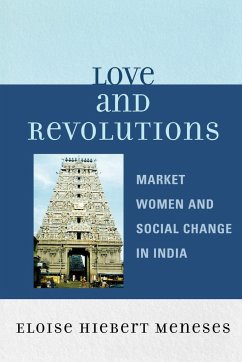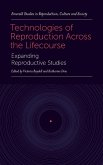The market women of India are poor, female, and untouchable (Dalit), all highly stigmatized statuses. They eek out a living for themselves and their children by doing 'penny capitalism.' Traditionally, the Hindu cosmology of hierarchy and stasis has circumscribed women's and Dalits' lives with notions of purity and pollution. But, since the advent of nineteenth century Protestant missions, a social reform movement has challenged traditional forms of debasement and exploitation. Still, Dalit communities are responding to unprecedented political opportunities by taking a socially conservative path. They are attempting to demonstrate their value by emulating higher caste practices. One of these practices is the giving of dowry. So, market women are painfully saving large amounts of money to marry off their daughters with dowries, thereby reinforcing Hindu values.
Hinweis: Dieser Artikel kann nur an eine deutsche Lieferadresse ausgeliefert werden.
Hinweis: Dieser Artikel kann nur an eine deutsche Lieferadresse ausgeliefert werden.








